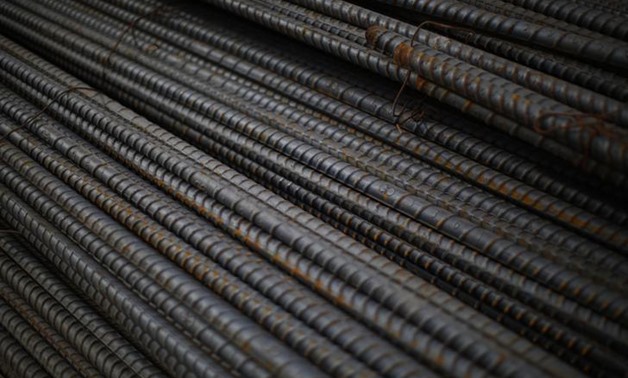
Rebar is seen in New York May 6, 2013 - REUTERS/Eric Thayer/File photo
CAIRO – 6 December 2017: The decision by Egypt’s Trade Ministry to maintain tariffs on steel rebar from China, Turkey, and Ukraine for a period of five years will not lead to an increase in steel prices in Egypt, Tarek el-Geyoushi, member of the Metallurgical Industries Chamber (MIC) of the Federation of Egyptian Industries said Wednesday.
He added that imposing tariffs aimed at supporting local industry and did not mean baring imports from all countries, saying that the decision was “fair” in light of dumping practices.
Dumping is the export by a country or company of a product at a price that is lower in the foreign market than the price charged in the domestic market.
Geyoushi said that the decision would not lead to price increases or decreases in the local market because prices in local factories are tied to production inputs.
The Trade Ministry maintained on Wednesday tariffs on steel rebar from China, Turkey, and Ukraine for five years, extending a temporary tariff imposed earlier this year.
The tariff was first implemented in June to protect local manufacturers and set at 17 percent for Chinese steel, 10-19 percent for Turkish steel, and 15-27 percent for Ukrainian steel.
Trade Minister Tarek Kabil said that the decision came after an investigation by the ministry, following a complaint by the local industry, which reportedly said that the industry is being harmed by the big increases in steel rebar’s imports from China, Turkey and Ukraine, and that these imports are being sold below their normal value.
Member of Metallurgical Industries Chamber Rafik el-Daw said in previous statements that imposing anti-dumping duty would have a positive impact on the local industry, adding that steel was imported in large quantities despite an excess in local production that amounts to four million tons.
Daw said that there was no need to import steel, especially that the quality of the local product is high. He added that Egyptian producers were able to export their produce.
After imposing the tariffs in June 2017, Egypt’s imports from steel dropped 74 percent in the first half of the year to 2.8 thousand tons, compared to 25,000 tons last year, according to figures from the General Organization For Export and Import Control.
Another member of the chamber, Hassan el-Marakby, said that the investigations conducted by the Trade Ministry have proved the dumping practices, adding that the chamber has presented proof in that regard.
He said that the decision proves that the government is determined to protect the local industry.
Comments
Leave a Comment